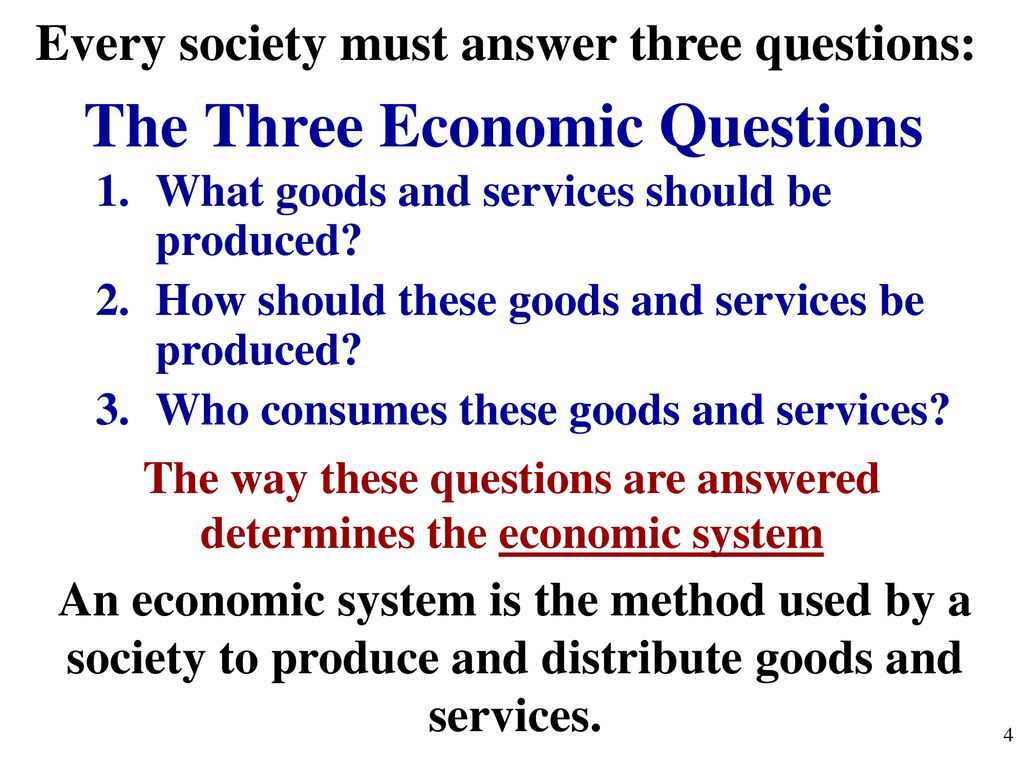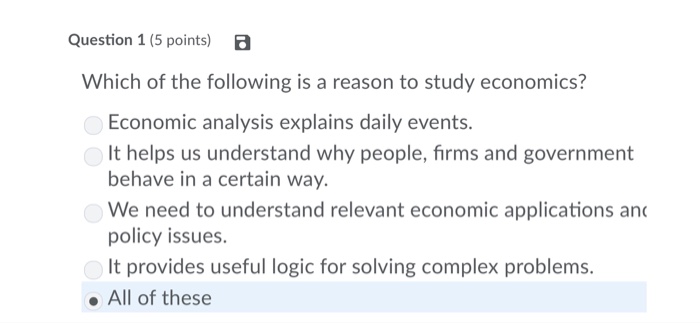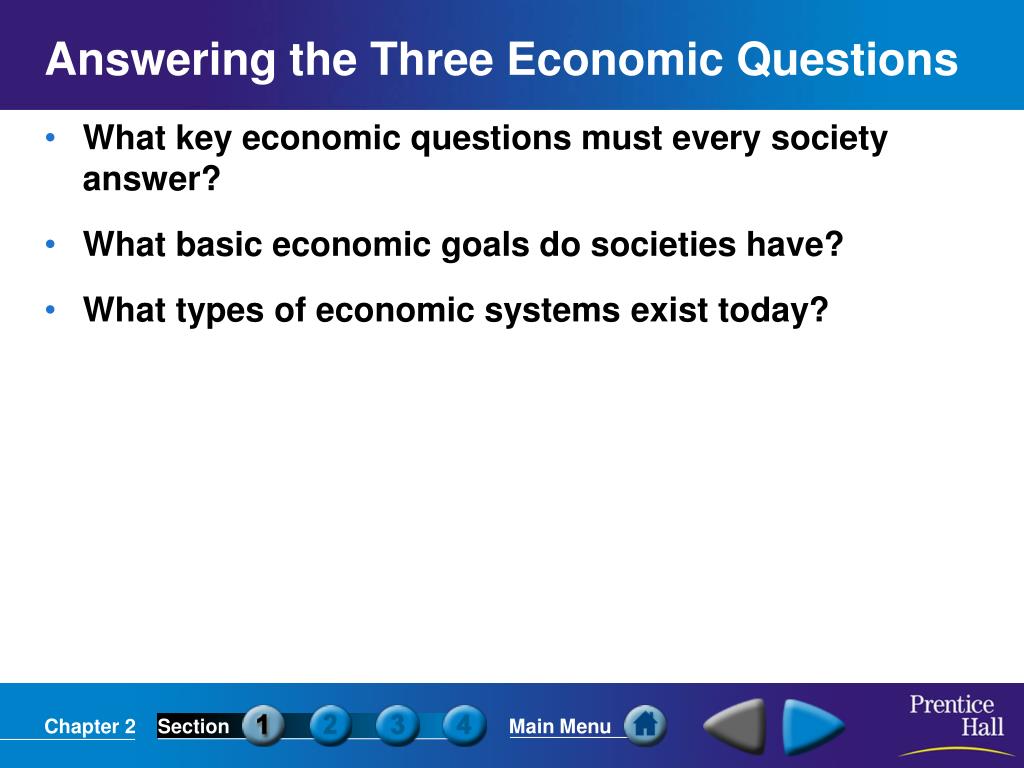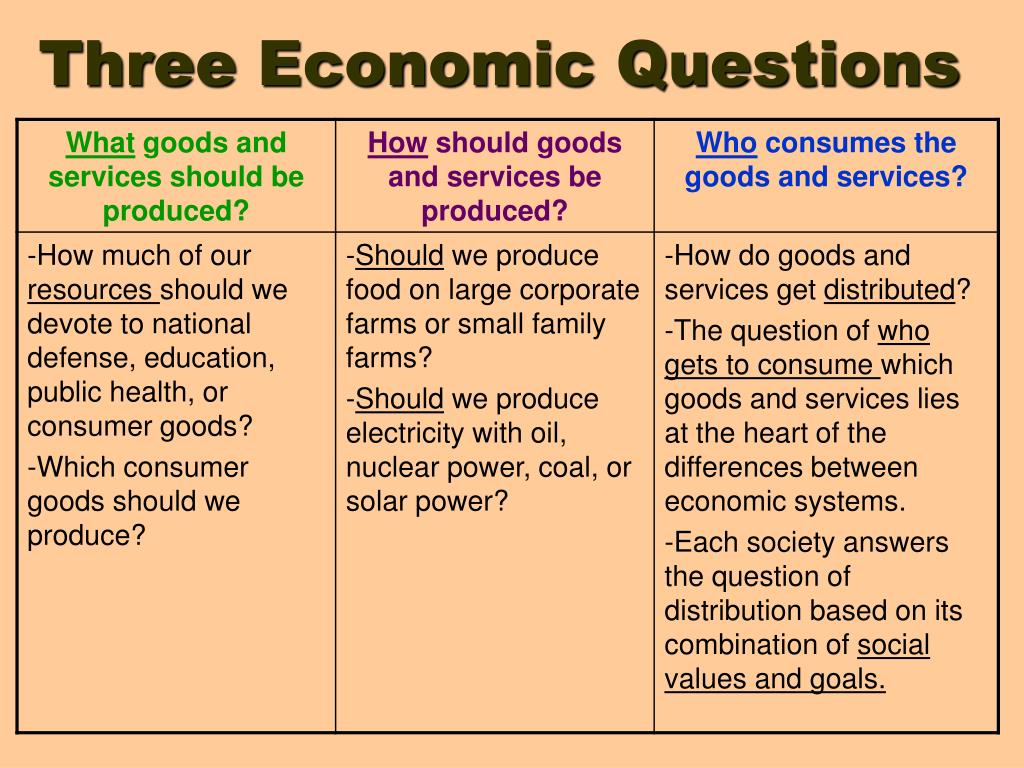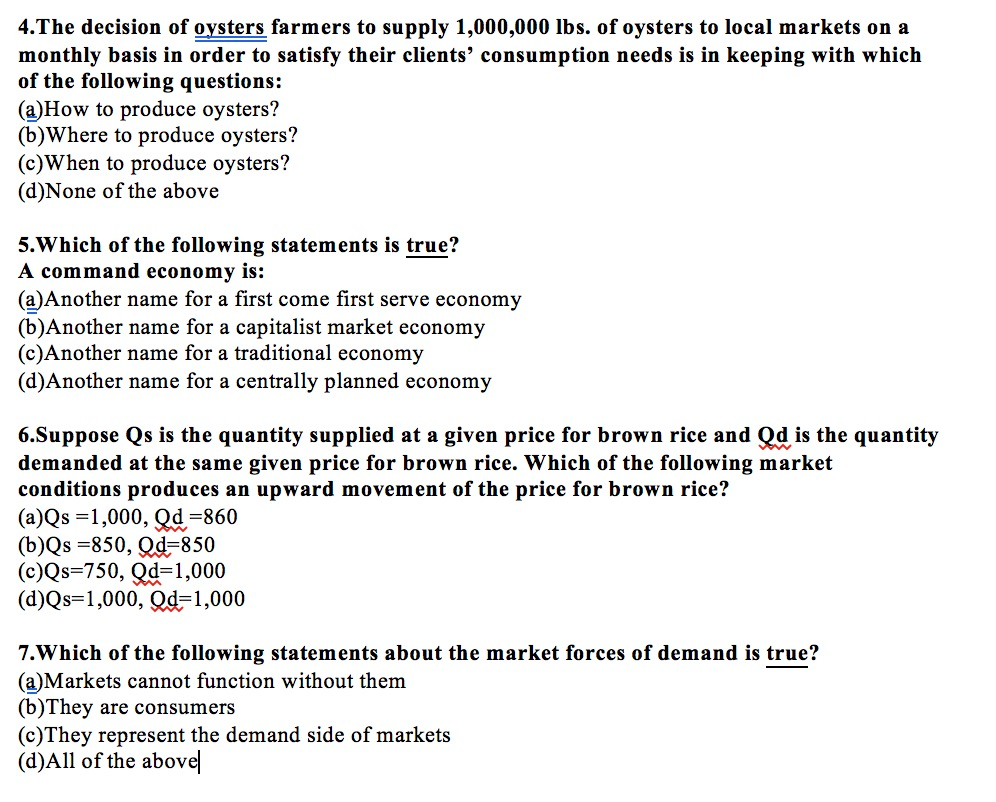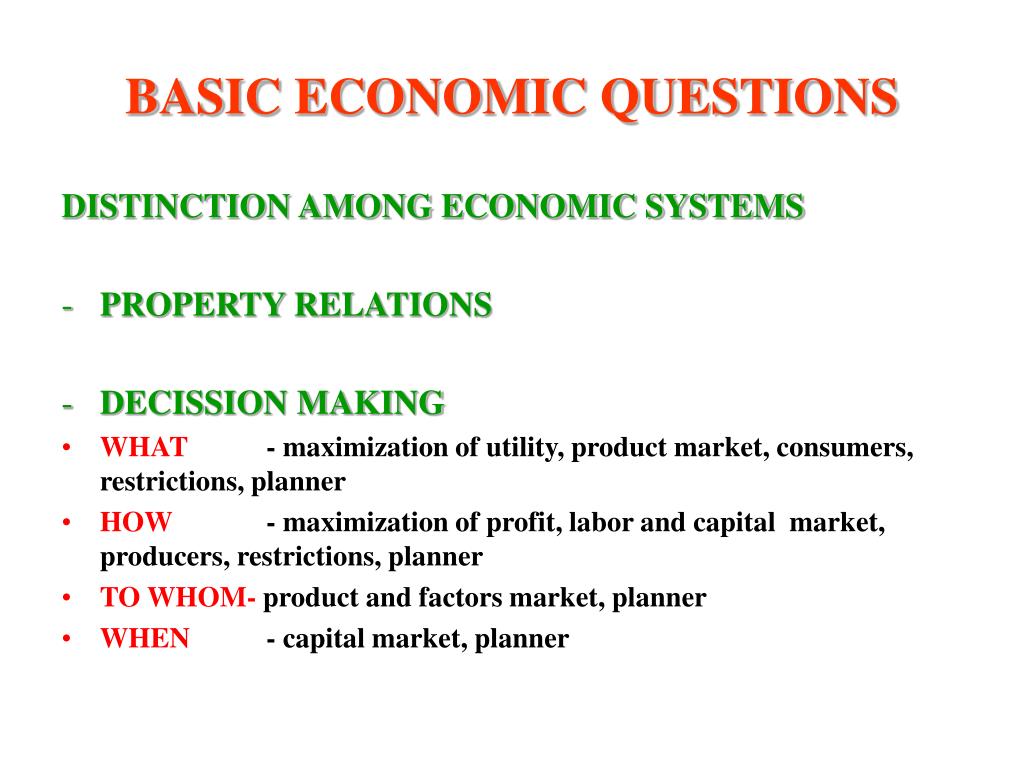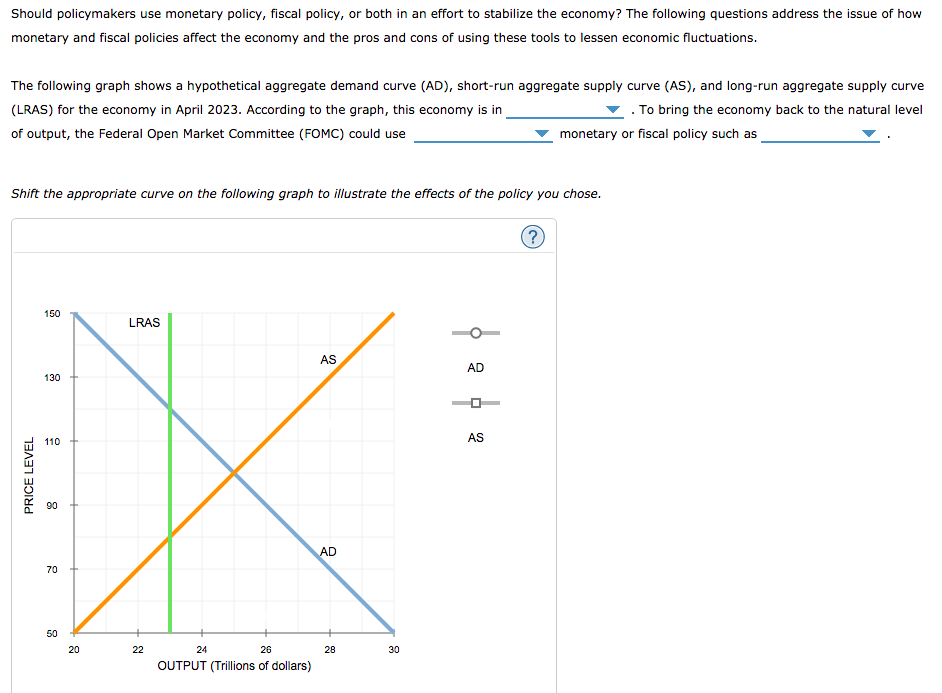The Questions Of Economics Address Which Of The Following

In a world grappling with inflation, resource scarcity, and stark inequalities, the relevance of economics has never been more pronounced. From the price of a loaf of bread to the geopolitical ramifications of trade wars, economic forces shape our daily lives and the trajectory of nations. Understanding the fundamental questions economics seeks to answer is crucial for navigating an increasingly complex global landscape.
At its core, economics addresses the fundamental problem of scarcity: how societies allocate limited resources to satisfy unlimited wants and needs. This article delves into the key questions economics explores, examining resource allocation, production, distribution, consumption, and the overall well-being of individuals and societies. It will also explore various schools of thought and the complexities of applying economic principles in a dynamic world.
The Central Questions of Economics
Economics, at its essence, revolves around a few fundamental questions. These questions provide a framework for understanding how societies function economically and how individuals make decisions within those systems.
What to Produce?
This question addresses the allocation of resources to different goods and services. Societies must decide what products to prioritize, considering consumer demand, technological capabilities, and resource availability. Governments, businesses, and individuals all play a role in shaping this decision.
For instance, should a nation invest more in healthcare or defense? Should a company focus on producing luxury goods or essential commodities? The answers depend on various factors, including societal values, economic conditions, and political priorities.
How to Produce?
This question concerns the methods of production employed to create goods and services. Should production be labor-intensive or capital-intensive? What technologies should be used? Should production be environmentally sustainable, even if it increases costs?
The choice of production methods often involves a trade-off between efficiency, cost, and environmental impact. Developing countries may opt for labor-intensive methods to create jobs, while developed countries may favor capital-intensive methods to boost productivity. Sustainable practices are increasingly important considerations in production decisions.
For Whom to Produce?
This question deals with the distribution of goods and services among individuals and groups within a society. How should income be distributed? What role should government play in redistributing wealth? How can we ensure equitable access to essential goods and services?
Different economic systems have different approaches to distribution. In market economies, distribution is largely determined by market forces, but governments often intervene through taxation and social welfare programs. The debate over income inequality and wealth distribution remains a central issue in economics.
How to Ensure Economic Growth?
Economic growth refers to the increase in the production of goods and services over time. This question explores the factors that drive economic growth, such as technological innovation, investment, and human capital development.
Sustainable economic growth is a key goal for most nations, as it can lead to higher living standards and improved social outcomes. However, it is crucial to manage growth in a way that minimizes environmental damage and promotes social equity.
Schools of Economic Thought
Different schools of economic thought offer varying perspectives on these fundamental questions. These competing frameworks shape policy recommendations and influence how economists analyze economic phenomena.
Classical Economics
Classical economics, championed by thinkers like Adam Smith and David Ricardo, emphasizes the role of free markets and limited government intervention. They believed that markets are self-regulating and that government intervention can distort prices and impede economic efficiency.
This school of thought advocates for laissez-faire policies, believing that the pursuit of individual self-interest ultimately benefits society as a whole. The invisible hand of the market guides resources to their most productive uses.
Keynesian Economics
Keynesian economics, developed by John Maynard Keynes, argues that government intervention is necessary to stabilize the economy, especially during recessions. Keynesian economists believe that aggregate demand can be insufficient to maintain full employment.
They advocate for fiscal policies, such as government spending and tax cuts, to stimulate demand and boost economic activity. During economic downturns, government intervention can help bridge the gap between aggregate supply and demand.
Marxist Economics
Marxist economics, based on the ideas of Karl Marx, focuses on the role of class struggle and the exploitation of labor in capitalist systems. Marx argued that capitalism is inherently unstable and will eventually be overthrown by a socialist revolution.
This school of thought emphasizes the importance of income redistribution and the abolition of private property. It offers a critique of capitalism and its inherent inequalities.
Behavioral Economics
Behavioral economics incorporates insights from psychology to understand how individuals make economic decisions. It recognizes that people are not always rational and that their choices are often influenced by biases, emotions, and social norms.
This field challenges the traditional assumption of perfect rationality in economic models. It highlights the importance of understanding psychological factors when designing economic policies.
Applying Economic Principles in the Real World
The principles of economics are applied in various real-world contexts, from policymaking to business strategy. Understanding these applications is crucial for making informed decisions and navigating economic challenges.
Governments use economic analysis to design fiscal and monetary policies, regulate industries, and promote economic development. Businesses use economic principles to make decisions about pricing, production, and investment.
Individuals use economic concepts to manage their finances, make investment decisions, and plan for the future. Economic literacy is essential for informed citizenship and financial well-being.
Looking Ahead
As the global economy faces new challenges, such as climate change, technological disruption, and rising inequality, the questions of economics become even more critical. Finding solutions to these challenges will require innovative thinking and a deep understanding of economic principles.
The ongoing evolution of economic thought, incorporating insights from behavioral economics, complexity theory, and other fields, offers hope for addressing these challenges. A nuanced understanding of economics is essential for building a more sustainable and equitable future.
Ultimately, economics seeks to understand how societies can best allocate their limited resources to improve the well-being of their citizens. By grappling with these fundamental questions, we can work towards creating a more prosperous and just world for all.


